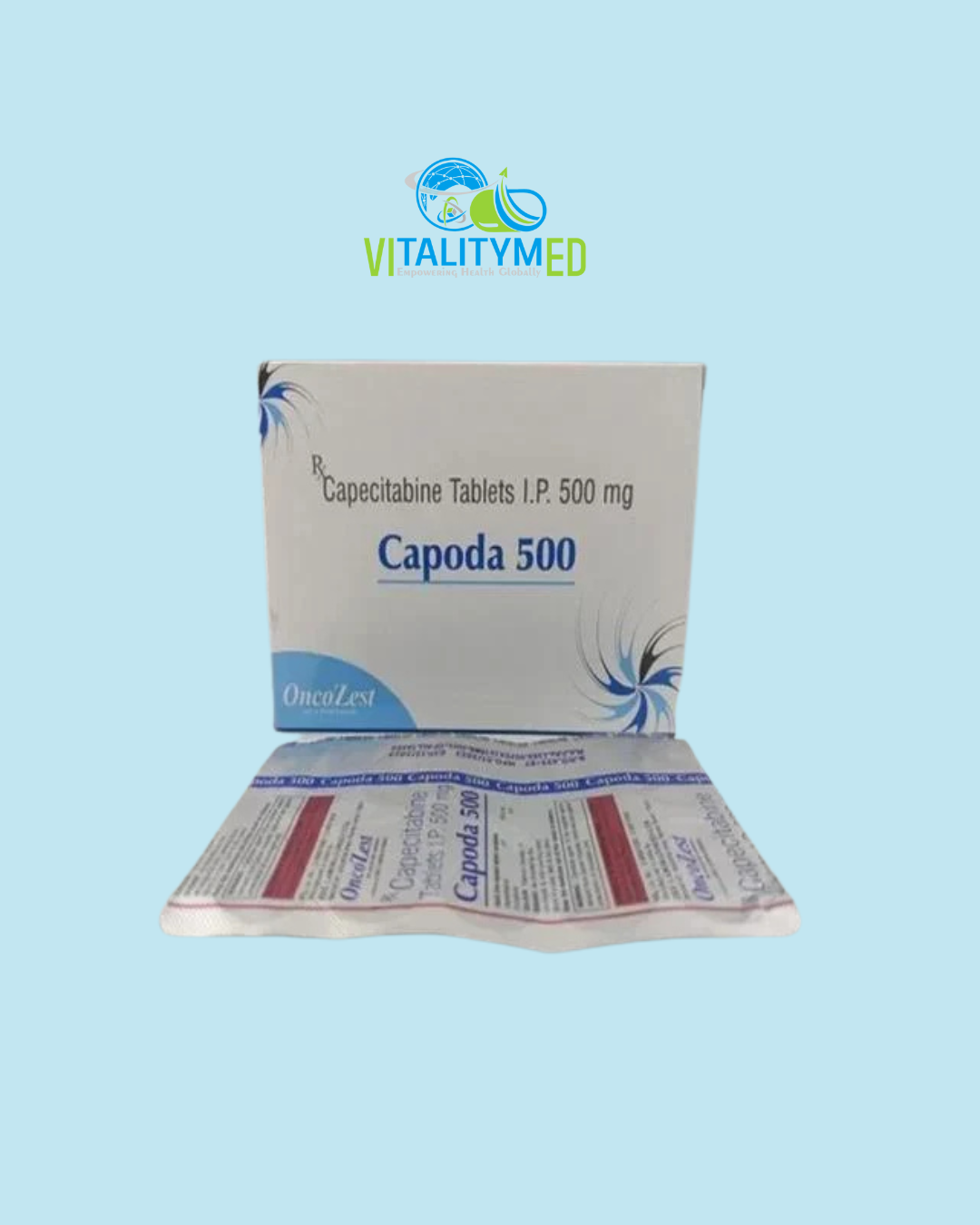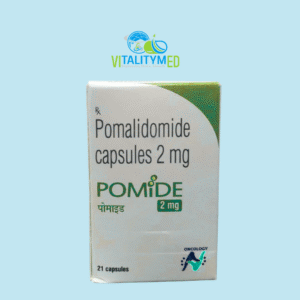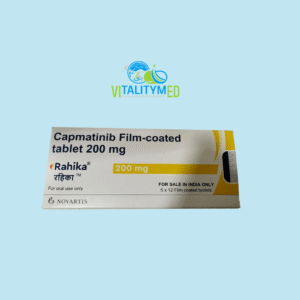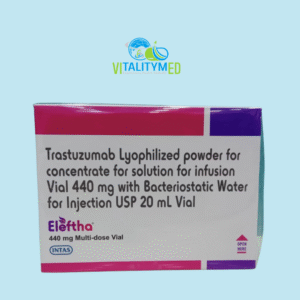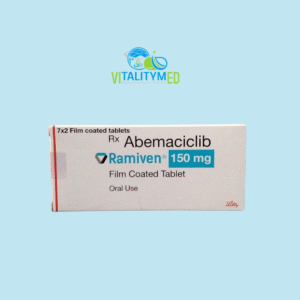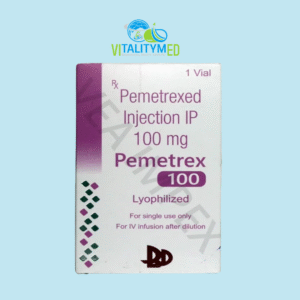Capoda 500 mg contains Capecitabine, an oral chemotherapy medicine that is converted inside the body into 5-fluorouracil (5-FU), a well-known anti-cancer agent.
It allows patients to receive chemotherapy at home in tablet form, avoiding the need for regular intravenous infusions.
Capecitabine is widely used to treat cancers of the colon, rectum, breast, and sometimes stomach, helping shrink tumours, reduce recurrence risk, and prolong survival.
Mechanism of Action
Capecitabine is a prodrug, meaning it becomes active only after being processed inside the body.
-
After being absorbed from the gut, it undergoes a series of enzymatic steps, ultimately being converted into 5-fluorouracil (5-FU) directly inside tumour cells.
-
5-FU then interferes with the production of thymidine, a building block of DNA, by inhibiting the enzyme thymidylate synthase.
-
This prevents cancer cells from properly replicating their DNA and dividing, ultimately causing them to die.
Uses / Indications
Capoda (capecitabine) is indicated for the treatment of:
-
Colorectal cancer (colon and rectum), used as adjuvant therapy after surgery or in advanced/metastatic cases.
-
Breast cancer, particularly after failure of anthracyclines and taxanes, or in combination with docetaxel.
-
Sometimes used in gastric (stomach) cancers, combined with platinum-based drugs like oxaliplatin or cisplatin.
Adverse Effects
Capecitabine, by converting into 5-FU inside the body, can affect normal fast-growing cells along with cancer cells, leading to predictable side effects.
Common side effects include:
-
Hand-foot syndrome (palmar-plantar erythrodysesthesia): redness, swelling, tenderness or peeling of the palms and soles.
-
Diarrhoea, sometimes requiring dose adjustment.
-
Mild nausea, vomiting, loss of appetite.
-
Fatigue and mouth sores (stomatitis).
-
-

